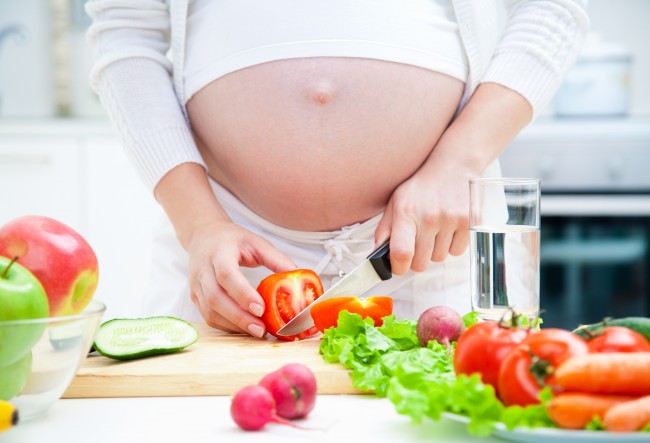I often overhear conversations between pregnant moms about pregnancy symptoms that either they or their friends have experienced (both good and bad). Most of these comments are often accompanied by replies such as “shame that’s horrible” or “I feel so bad for her” or “ah she is so lucky” or even “I wish I was her.”
Pregnancy symptoms differ between person to person and in fact pregnancy to pregnancy. It is not uncommon for a mom to have a completely smooth first pregnancy with no morning sickness, heartburn or any other discomfort; yet the second pregnancy will be riddled with painful and uncomfortable symptoms.
The good news is that your diet can help relieve the symptoms and side effects of pregnancy.
Snack throughout the day to reduce nausea
It is not certain why so many women experience nausea during their pregnancy but it is thought to be a combination of the rapidly increasing hormone levels, general body changes and an enhanced sense of taste and smell. Batteling nausea? Try these tips…
- Have a dry carbohydrate snack when waking up, for example dry toast or crackers
- Be sure to drink enough fluids
- Have small regular snacks throughout the day to stabilise sugar levels
- Have a snack that is high in protein before bed, for example yoghurt or nuts
- Avoid cooking foods that make you feel ill especially very oily or greasy foods
Combat heartburn by cutting your portions
During pregnancy the hormone progesterone relaxes the lower oesophageal sphincter which connects the oesophagus to the stomach. This allows stomach acids to seep back up into the oesophagus and cause that burning sensation. It can be extremely painful but your diet can help to reduce the frequency of the pain:
- Cut down on the quantity at one sitting. Instead eat smaller, more frequent meals
- Chew properly and eat slowly
- Avoid lying down after eating, rather remain seated
- Cut down on spicy foods, fatty meals, caffeine and peppermint
- Have liquid between meals rather than with meals
Fiber fights constipation
The muscles within the intestine tend to become more relaxed during pregnancy which results in reduced motility of food through the digestive tract. In addition to this, there is also increased pressure from the uterus which slows the movement of food. Aim to do the following:
- Increase fiber intake to ±25g per day (more brown and whole wheat products)
- Increase water intake
- Eat a minimum of 5 vegetables and fruit a day (eat the skin when permissible)
- Eat regular meals and avoid skipping meals
Latest posts by Contributor (see all)
- Reflux in babies: Foods to avoid - June 25, 2014
- Video: Tips to get your toddler to exercise - June 25, 2014
- Baby development: Can you teach your baby to read? - June 25, 2014
-
No Comments" href="https://all4baby.co.za/pregnancy/nutrition-and-exercise/811/exercise-pregnancy/">

Exercise during Pregnancy: Why you should be doing it
-
No Comments" href="https://all4baby.co.za/pregnancy/pregnancy-symptoms/645/first-trimester-pregnancy-symptoms-explained/">

Your first trimester pregnancy symptoms explained!
-
No Comments" href="https://all4baby.co.za/pregnancy/third-trimester/310/dear-dads-pregnancy-tough/">

Dear dads-to-be, pregnancy is tough


 Saving...
Saving...